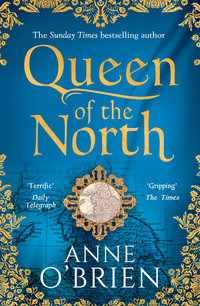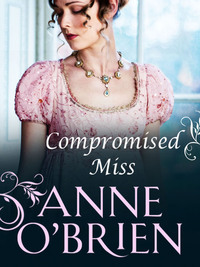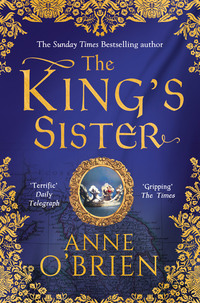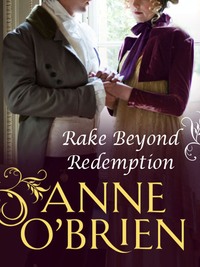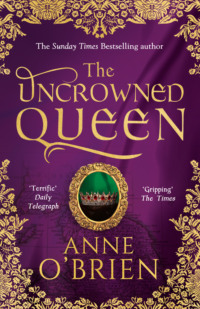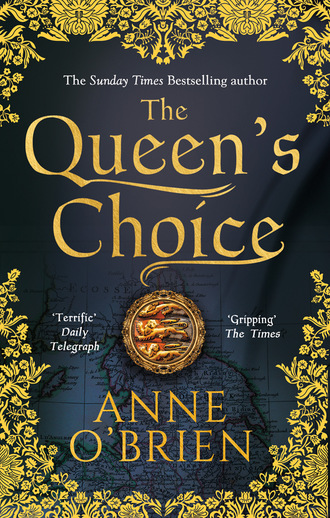
Полная версия
The Queen's Choice
So under my guidance John was lifted onto the bed of a wagon made seemly with a woollen coverlet, while I brushed the rime from his sleeves, combed my fingers through his hair and replaced his hat so that the jewels glimmered bravely. I closed his eyes with a gentle hand. Finally I ordered the placing of a cloth embroidered with even squares of gold and blue across his body; he would return with all the gravity of his heraldic symbols on his breast.
Remounting to follow in sad procession, seeing the residue of terror still imprinted on every line of my eldest son’s face: ‘Wait.’
And I took the hawk from the falconer onto my own wrist and held it out to John, my son.
‘The goshawk is yours now. You will carry him home. Your father would want it. He would have given him to you.’
My son gulped but the tears dried and raising his arm he carried the hawk with great pride. It was well done.
Thus began the saddest journey of my life as I rode beside my husband’s body. Such were my regrets: no final words to recall, no deathbed speech, no struggle to defeat the hand of death. No opportunity for me to tell him of my regard. It had come so fast and without warning. He had lived for fifty-nine years, many of them difficult ones when he could not call his inheritance his own, then left this life as fast as a soft breath when falling asleep, just when his hold on Brittany was stronger than it had ever been and he should have been able to anticipate years of good government.
‘It was his heart, my lady. I have seen such before. It can strike when least expected. He was a great man. It was a blessing that you were there with him.’ Father Clement who had been advised and had ridden out with the wagon, pulled his mount to ride alongside. ‘He loved you greatly, my lady.’
‘Thank you. I know it.’
What more to say? I had lost the one person I considered to be my friend, who had given my life stability. Not a lover, although we had shared a bed with pleasure and obvious results, but a friend in whom I could trust. John had been courteous and affectionate. He had respect for me, the third of his wives. Never burdening me with the heady concept of love, he had treated me with a warmth and closeness that I could never have imagined. He had acknowledged my inexplicable feelings for Henry, without castigating me for disloyalty.
Could any husband deal with his wife with such sensitivity as John had dealt with me?
We had been wed for thirteen years and now it was over. I should have expected it perhaps, for he was no longer a young man, but I had not. His energies had not once waned, nor had his mind grown lax. I had, foolishly, thought my comfortable life would last for ever. Who would I talk with now, about the ambitions of the Duke of Orleans or the consequences of King Charles’s fragile mind?
We made a sorry party as we rode through the arched gateway into the courtyard where news had gone out and the servants and household were gathering. Many wept openly. I did not. It behoved me to take command and set in motion the needs of the day. Accepting that it was my role to be strong where others were weak, my thoughts were crammed with detail that must be addressed until I forced them into ordered ranks. All attention was focused on me. I must thrust aside all distractions and concentrate on what must happen now.
My son was Duke of Brittany. But who would rule in his stead, until he was of an age to take on the mantle? Had John made provision? Surely there was a will that would make all clear. Maybe John had chosen the Duke of Burgundy, an obvious choice for many, a man of wide experience and reputation, yet I felt my lips tighten in distaste. I would not like his interference in Breton affairs and in the life of my son. Nor, I thought, would John. As for myself, I could not envisage my future, my role, in this state that had become mine through marriage, but no longer. Now it was under the authority of my son, however incongruous it seemed.
Mindful of this slide of power into such small and inexperienced hands, I took my son’s shoulders in my grasp as he slid down from his horse. First steps. Small ones, but as a pattern for the future, entirely necessary.
‘Go to our steward,’ I ordered gently, taking the goshawk from him at last, seeing the panic leap into my son’s eye.
‘Where will he be, maman?’
‘In the muniment room. If not, one of the servants will take you to him. Tell him that we need to meet with him in my solar, in an hour. We have couriers to send out. Can you do that?’
‘Yes, maman.’ He drew himself up another few inches. I would not dishonour his new dignity by straightening his hair or wiping the stain of tears from his cheeks. But as he turned away:
‘You must not run. Not today. It is a stark and solemn day. You may run again tomorrow.’
He went. His first task as Duke of Brittany. And Arthur walked with him with such brotherly care it near broke my heart. It would take his mind from the horror of seeing his father drop from his saddle into death.
What of me?
I accompanied John’s body to the chapel to ensure that all was seemly. Then stood in the antechamber where the iridescent light through the little windows gave the brilliance of jewels to every surface, patterning on my skirts. I must remember to order black mourning garb for the household. I was alone. For the first time in my life I was alone, under the jurisdiction of no one.
There was a freedom attached to that aloneness. Just as there was memory present in that room where so much and so little had been said. It would have been rank dishonesty in me to say that that there was not.
*
First things first. I sought out the Duke’s man of law. ‘Did my lord the Duke leave a will?’
‘Indeed he did, my lady.’ The clerk laid his hand, in his busy fashion, on a scroll he had already extricated from a coffer. ‘I thought you would have need of it.’
‘To whom has he give authority, during my son’s minority?’ Better to know sooner than later. ‘Is it the Duke of Burgundy?’
‘No, my lady.’
‘The Duke of Berry?’ I was surprised, and prayed that it was not my cousin of Orleans. I did not like his ambitions.
The lawyer was shaking his head. ‘No, my lady. You misunderstand. My lord the Duke has left the power to yourself.’ He smoothed the document, turning it so that I might read. ‘You are named Regent during the young lord’s minority.’
I stared at the words and the ducal seals, heavily impressed in the wax, that confirmed all, and as I did so, all thoughts of freedom drained away and a chill hand closed over my nape. I was Regent. The authority to govern in Brittany was my own, with no interference from Burgundy or Berry or Orleans. It was mine. A blessing? At least my role was now clear, sanctified by the law and the Duke’s final wishes.
‘Some might be astounded, my lady. That the Duke—the late Duke, I should say—should choose a woman…’
‘They might.’ I was brusque. ‘I am not.’
For would not John see me as the best choice, the obvious choice to guide and guard his son?
It was in that moment that my decisions were made; my promise, to myself and to my son, as I shrugged off the cold sense of imprisonment. I would rule Brittany well. I would allow nothing that John had achieved to be destroyed by this death. Brittany would remain strong and secure under my hand. Had I not enough influential connections, in France, in Navarre, in Burgundy, to stand by me if I found myself in need? I would shoulder the burden myself, for that was my duty, my chosen path for the future, until my son was old enough to take his father’s sword and armour as his own. Since John had seen the ability in me in naming me Regent, I would never denigrate his choice. I would stand at my son’s side as he grew, to give advice, support, to instil courage. I would do it for John who was dead. For my son John who was alive. For my adoptive country that had taken me into its care and give me much happiness. As well as for my own pride.
Despite my female state, I would be a most effective Regent.
And the price that I must pay?
Here was no freedom.
The price was a heavy one, demanding that I brace my spine to take the weight, for I was no longer alone, under no man’s jurisdiction. My life was now bound with invisible chains of duty and service, of honour and a true dedication to the role that John had assigned to me. I was not free. I would never be free until my son no longer needed me, taking his place amongst the rulers of Europe with confidence and authority. I walked to my solar, aware of the figure that strode beside me in the making of those decisions. The figure who had leapt into vivid, vital life in the many-hued light of the chapel’s antechamber.
With no more than one thought of regret, I banished him. I drove him away. As well as the duty and service, my shoulders would bear the pain of that entirely necessary rejection too.
We sent off couriers that day, with letters written by our clerks, to France, to Navarre, to Burgundy. And because it was the diplomatic thing to do, I sent one to England too. It was not a personal letter.
Then I ordered black for my household.
*
The letter from England arrived on my table in my chamber of business. It took no longer than a dozen heartbeats to absorb the gist of it.
To my most honoured and respected cousin,
We can imagine your pain. Our thoughts are with you at this difficult time, and our prayers. We were remiss in our lack of communication in recent months, but we assure you of our compassion. We pray daily for your comfort and healing in your grief, as we know you have prayed for us in the past. We know that the future of Brittany is in good hands. We know that you will stand as our good friend, as you have in the past.
Your cousin,
Henry, King of England.
Written at Eltham, on this date in March, in the year 1400.
And that was that. There was no need for me to read it again.
Disappointment welled up in me. I recalled Henry saying that when he wrote it would be of armies and finance and inheritance, but this was so impersonal it might have been written by a palace clerk. In fact, studying the hand that was tight and even, I thought that it was. It was not Henry’s doing. It was the manner of condolence that might have been written as a diplomatic gesture to any ruler experiencing loss; or to an acquaintance, when a proposal to buy a high-blooded warhorse had fallen through, I thought savagely. This bleak notion of sympathy was not what my wayward heart had hoped for. I doubted that the signature scrawled at the bottom was his own, but then, I had never witnessed it.
I cast the letter aside.
No doubt one of my clerks could write a suitable reply, at some point in the coming days, from the exceedingly busy Duchess Joanna, Regent of Brittany. There was no urgency. No urgency at all.
Конец ознакомительного фрагмента.
Текст предоставлен ООО «ЛитРес».
Прочитайте эту книгу целиком, купив полную легальную версию на ЛитРес.
Безопасно оплатить книгу можно банковской картой Visa, MasterCard, Maestro, со счета мобильного телефона, с платежного терминала, в салоне МТС или Связной, через PayPal, WebMoney, Яндекс.Деньги, QIWI Кошелек, бонусными картами или другим удобным Вам способом.





